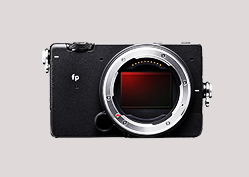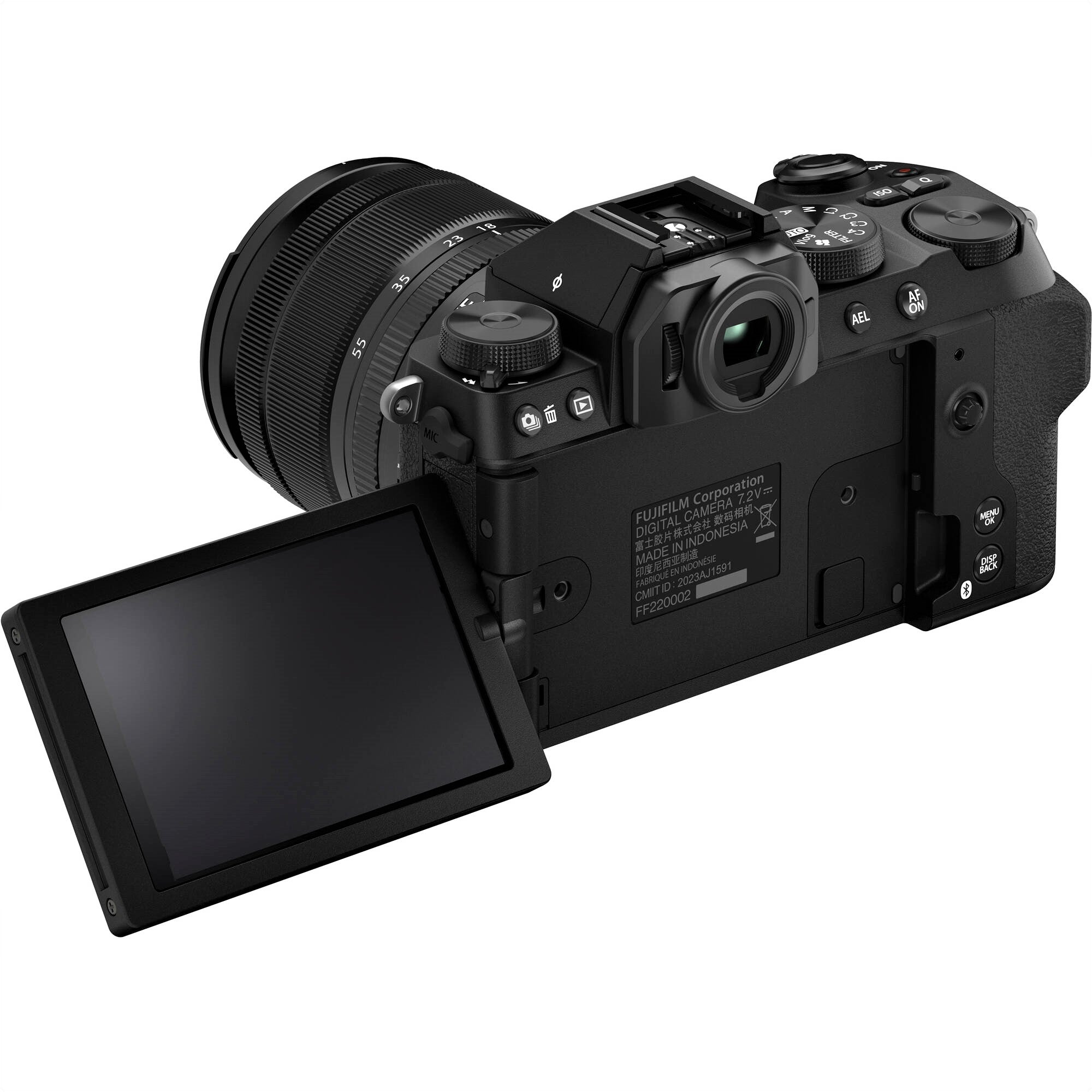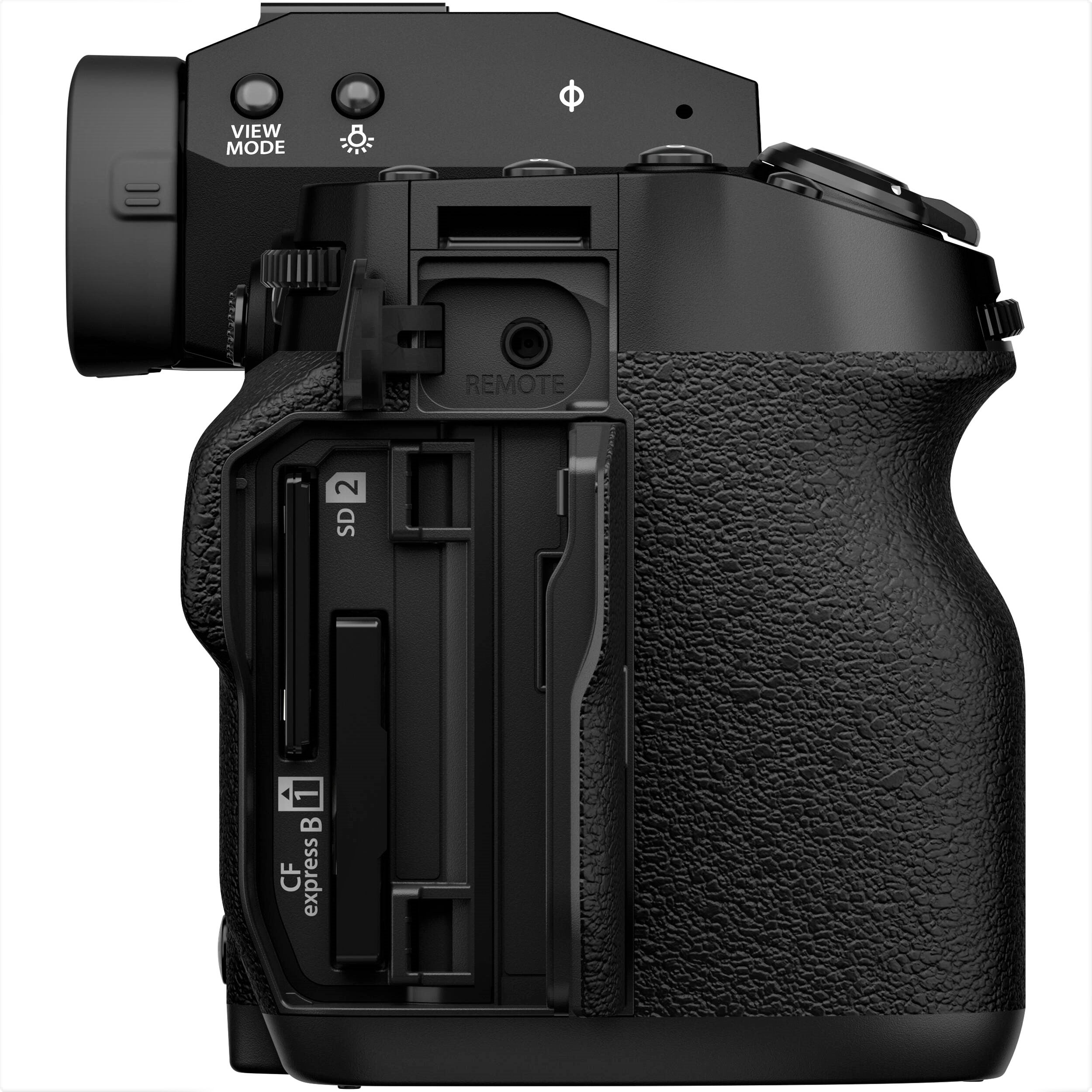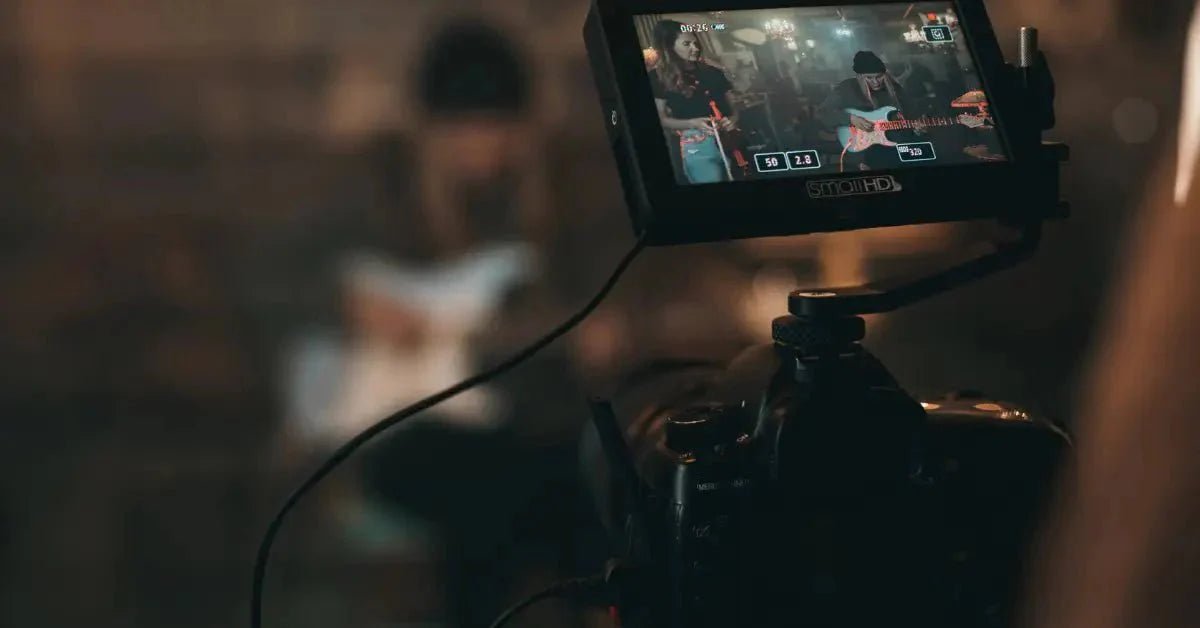Imagine turning your love for photography into a full-fledged business. Every click of your camera isn't just about capturing moments anymore—it's about building your dream job.
Launching a photography business can be a wild ride, It’s an exhilarating mix of creativity and entrepreneurial spirit, tailor-made for those ready to carve a unique path in the business world.
If you're new to professional photography or already experienced and thinking about starting your own business, this guide is here to help.
We'll discuss the needs of setting up shop, from the first steps to advanced tips that'll help your business flourish. Ready to see how you can turn your passion for photography into a money-making reality?
Let’s zoom in and get the picture!
How to Start a Photography Business?
Understanding the Market

Before you start your photography business, study your local market. What’s hot right now? Weddings that need capturing in stunning detail? Or maybe the buzz is all about professional headshots, perfect for the corporate world.
Local businesses might be craving for high quality commercial shots to boost their brand. Getting a grip on these trends helps you spot where you could really shine.
Now, check out the competition. What are they doing? How much do they charge? How do they sell themselves? This isn’t just about seeing what others do—it’s about finding where they’re missing a beat.
Maybe there’s a ton of wedding photographers, but not many focusing on corporate events or affordable portraits. Spotting these holes could help you design your services to fill them, setting you apart as the photographer everyone needs for those overlooked gigs.
Align your services with these findings. You’ll not only meet the needs out there but also attract clients who haven’t found what they’re looking for elsewhere.
This strategy does more than fill a void—it carves out a unique niche for you, making your start in the photography business stand out and succeed.
Creating a Business Plan

Planning a simple yet effective business plan for your photography business is like plotting a clear path to success. It's your guide in a competitive landscape.
- Start with Clear Goals: What do you want from your photography business? Maybe you aim to be the top wedding photographer locally, or perhaps you wish to capture stunning landscape shots for businesses. Setting clear goals helps you measure progress and stay on track.
- Identify Your Audience: Who needs your photography? It could be young couples, businesses needing professional images, or editors seeking striking visuals for magazines. Knowing your audience helps tailor your services and craft effective marketing.
- Set Pricing and Budget Initial Costs: Pricing is important. It's about balancing competitiveness with profitability. Think about all costs, not just equipment but also a website, business cards, and marketing. This planning helps you set prices that attract clients and maintain profits.
- Choose a Business Structure: Will you work solo or with partners? Your business form, like sole proprietorship or corporation, affects taxes and liability. Each option has pros and cons worth considering.
- Plan Your Revenue Streams: How will you earn? Selling prints, booking sessions, or offering packages are options. List your expected expenses too. Understanding these financial aspects is key to a healthy business.
- Use Your Business Plan Effectively: Your business plan isn’t just a personal guide; it's crucial for securing investments or loans. A well-thought-out plan shows your understanding of the market and your strategy to thrive, appealing to investors or banks.
Setting Up Your Business
Legal Requirements

Starting a photography business requires compliance with the law, which can seem overwhelming. Start by choosing the right business structure, like a sole proprietorship for those going it alone or an LLC for better liability protection and tax perks, based on your goals and risk comfort.
Next, pick a business name. This is more than a creative task; it's critical for your brand's identity and client recall. Once chosen, register the name to protect your brand in your area.
Then, tackle the licenses and permits, which differ by location and affect your operations. Check with local authorities or their websites for specific guidance, making sure you meet all legal requirements.
Don't overlook insurance; it's important for protecting your expensive gear and covering potential liabilities from accidents or legal issues. This step is important for your business’s financial health.
If legal details overwhelm you, consider advice from a business law expert. This investment makes sure a solid foundation for your business, letting you focus on what you love: photography.
Addressing these legal elements not only stabilizes your current situation but also fosters future growth.
Branding and Marketing

Your brand is more than a logo; it's the heart of your photography business. It reflects your unique style and values, shaping how you engage with clients.
A strong brand connects emotionally with your audience, building trust and loyalty. This trust makes your brand a powerful ally, working tirelessly to attract and reassure clients.
By maintaining a consistent brand presence, you make your business memorable and poised for growth in the competitive photography market.
Design a Logo and Stylish Website

Start by choosing a simple, memorable logo to represent your brand, much like the straightforward yet iconic designs of Apple or Nike. This logo will be your brand's first impression, making clarity and distinctiveness crucial for recognition across various media and sizes.
Next, develop your website, which acts as a vibrant gateway presenting your brand to the online world. Aim for a visually appealing and user-friendly design. It should clearly showcase the quality of your work through high-resolution visuals and a consistent style that echoes your brand's essence.
Every page, from your portfolio to service details, should clearly convey what you offer and how visitors can engage with your services.
Add a personal narrative in the 'About Me' section to connect more deeply with your audience. Share your inspirations and journey—people are naturally attracted to stories and the personalities behind businesses.
This connection transforms your website from a simple business listing into an engaging story that can foster lasting relationships with your visitors.
Leverage Social Media

Social media is not just for sharing pictures. It's a vibrant space for real interaction. Photographers find platforms like Instagram, Facebook, TikTok and Pinterest valuable not only for showcasing their work but also for creating a supportive community.
To effectively manage your social media, remember: regular posts matter, but engaging with your audience is key. Respond to comments, ask questions, and participate in discussions. This interaction helps build a community, showing that you care about your followers' opinions.
Don't just post photos—share the stories behind them. Talk about your creative process, the obstacles you encountered, and how you overcame them. This not only demonstrates your technical expertise but also makes you more relatable. It shows potential clients that you're not just taking pictures; you're creating stories and forming connections.
This strategy boosts your visibility and strengthens your bonds with your audience. They're more likely to remember you when they need photography services.
Marketing Materials that Tell Your Story

To create effective marketing materials—like business cards, brochures, and flyers—photographers must focus on high-quality design. Choose a style that showcases your photography and makes your materials stand out. This might include eye-catching colors, unique fonts, or innovative layouts. Each piece should grab attention.
Keep everything consistent. Your materials should match in design and message, whether someone is reading your brochure or browsing your Instagram. This consistency builds trust and reinforces your professional image.
Just make sure every material reflects your brand distinctly. In a competitive market, it’s important that clients recognize and remember your specific quality and aesthetic immediately.
Also, include a clear call to action in all materials. Prompt viewers to visit your website, follow you on social media, or book a session. This encourages quick engagement and boosts conversions.
By emphasizing these elements, your marketing efforts will not only inform but also engage and convert, strengthening your brand's impact.
Build Your Reputation

Branding and marketing are key, not just for grabbing attention, but for building trust and a strong reputation. A brand that screams quality and professionalism sets the bar high. This not only draws in clients but attracts those willing to pay for high quality service.
Keep delivering great service and taking stunning photos, and your clients will do the talking. Their good words turn into free marketing, making your brand synonymous with high-quality photography. This reputation acts like a magnet, pulling in more selective clients and helping you stand out in a crowded market.
Combining trust, quality, and clear communication builds a strong brand presence. This presence boosts how clients see your business and significantly extends your market influence.
Together, these elements strengthen your brand, making it a leader in the industry and the go-to option for those who prioritize quality.
Acquiring the Right Equipment

Photography thrives on quality gear. Just like the perfect ingredients improve a gourmet meal, the right camera and lenses transform a decent shot into a stunning one. Start with a reliable DSLR or mirrorless camera and a few key lenses.
A wide-angle lens captures expansive landscapes, while a zoom lens zeroes in on detailed portraits or nature scenes with sharp precision. This foundational gear ensures broad creative freedom without overwhelming choices.
There's no need to invest in the priciest equipment initially. Opt for essential, versatile tools. As your needs grow, consider expanding your lens collection to enhance your photography further, keeping your toolkit versatile yet compact.
Light plays a monumental role in photography. Even basic lighting setups, like softboxes or ring lights, can profoundly improve a photo taken under less-than-ideal conditions. These tools help soften shadows and distribute light evenly, essential for both new and seasoned photographers.
Over time, explore additional lighting options to refine your technique and elevate your artistry.
Editing is crucial—it's your digital darkroom where visions become reality. Start with user-friendly software like Adobe Lightroom or consider cost-effective alternatives like Affinity Photo. These programs let you adjust exposure, color balance, and sharpness to polish your photos to professional standards.
Embrace a gradual approach to building your photography toolkit. This strategy keeps costs down and deepens your understanding of each component. As your skills advance, you'll better understand which new items will truly enhance your capabilities.
In photography, effective gear use often outweighs the advantages of high-end equipment. Equip yourself wisely, practice with intention, and prepare to capture breathtaking images.
Building a Portfolio

Your portfolio is more than just a collection of images; it’s your professional story told visually. It’s an important part of your marketing. When well-designed, it showcases not only your work but your unique artistic view and keen attention to detail. Each chosen piece reveals a part of who you are as a photographer and how you view the world.
If you’re starting your photography career, you might start with few clients. Use this time to try new things and improve your skills. Maybe offer free or discounted sessions to friends and family to build your portfolio.
This helps add variety and gives you more practice. Remember, becoming great at photography takes consistent practice.
It’s important to have diverse photos in your portfolio. Try to include different subjects—like people, landscapes, and events. Design your photos to the market you want to attract.
This shows your flexibility and your ability to meet different photographic needs. It gives potential clients a look at your range of skills.
Your portfolio should keep evolving. Update it regularly with new pieces that show how your style and skills have grown. This commitment to improvement keeps your portfolio fresh and effective as a marketing tool.
Also, keeping your portfolio current shows your commitment to excellence. This is key in the competitive photography field. For more tips on using your portfolio effectively, check out our blog post how to make a photography portfolio.
In the end, your portfolio is more than a tool; it’s the introduction to your brand. It makes a strong first impression, often before you meet potential clients in person. Carefully design each element to engage your audience and turn their interest into actual jobs.
How Much Does It Cost to Start a Photography Business?

Starting a photography business blends excitement with apprehension, mostly due to high initial costs. Knowing that these costs can widely vary aids in better budget management.
Several factors affect startup costs, such as location, chosen photography niche, and the quality of equipment you consider essential. This includes a reliable camera body, diverse lenses, solid lighting setups, and professional editing software to meet industry standards.
Typically, initial expenses for photographers run between $10,000 and $15,000. This budget should cover equipment, marketing, and essential business elements like licenses and insurance.
However, starting modestly is often just as effective. Opting for used equipment or mid-range products can cut initial costs significantly without severely impacting quality. This method allows for gradual investment in premium gear, driven by business earnings and growth rather than substantial upfront spending.
By carefully pacing your investments and prioritizing key areas, you can ease the initial financial shock of launching a photography business. Smart spending and strategic planning lay a strong foundation for steady growth.
This approach doesn't just control costs but also paves the way for future expansion as your portfolio and clientele expand.
How Profitable is a Photography Business?

Looking into the economics of photography merges passion with profit. Earnings vary, hinging on niche, pricing, and work volume.
Choosing specialties like wedding or corporate photography can boost income, offering great opportunities due to their high demand and stakes. Becoming a specialist, you can command higher fees and attract a steady client base that values specialized skills.
With experience, your efficiency increases—you snap photos faster, streamline editing, and improve workflow. This proficiency helps maintain quality while managing more assignments or raising rates without losing clients.
Mastering photography offers substantial financial rewards. It demands a strategic approach: identifying profitable niches, refining skills, and optimizing time. Align these elements, and photography transforms from a hobby into a significant income source.
Intrigued by turning your photography passion into a career? Our blog is packed with insights and practical tips. From setups to marketing strategies, we help you minimize risks and maximize returns..
In the photography industry, a significant percentage of professionals report earning considerable income once they establish themselves. According to the U.S. Bureau of Labor Statistics, the median annual wage for photographers in 2022 was $43,200, with top earners making upwards of $77,760 per year.
Additionally, the demand for professional photographers is expected to grow by 9% from 2021 to 2031, a rate faster than the average for all other occupations, especially in areas like weddings and commercial photography.
Conclusion
Starting a photography business requires a blend of artistic talent, business acumen, and strategic marketing. By understanding your market, setting up a structured business plan, and continuously refining your skills and services, you can build a successful photography business.
Remember, every successful business starts with a first step—so grab your camera, and start capturing the future you envision.
Ready to turn your passion into a profession? Begin your journey today by planning, preparing, and launching your photography business. Capture your dreams one click at a time!
Visit Nuzira to and join our Discord channel to learn more!






